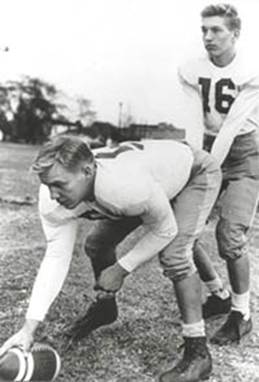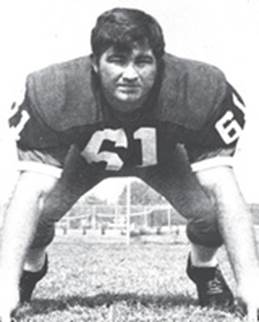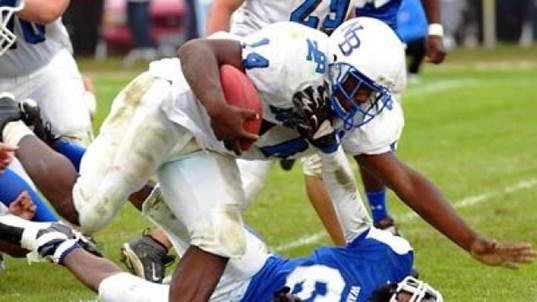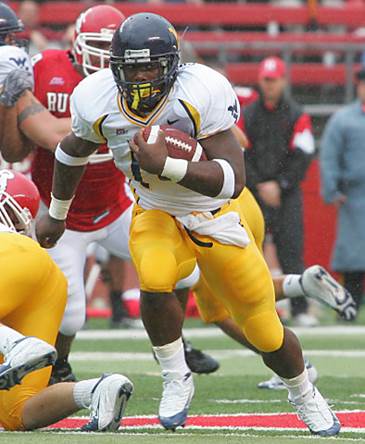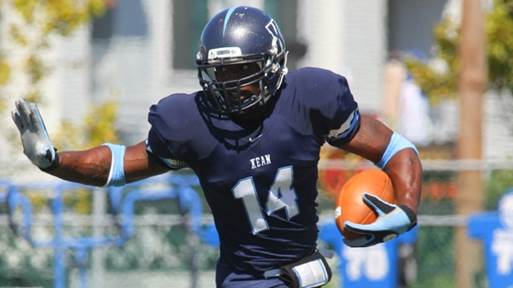HELMET HUT
NEWS/REFLECTIONS August 2017:
"CHANGING VALUES"
By Dr. Ken
I can recall chuckling as my father once gave me his version of sage advice. “Deep thinking” wasn’t his thing, there wasn’t a book in the house other than the ubiquitous Encyclopedia Britannica that no one read other than me, and introspective conversation was a foreign concept. I did however have enormous respect for his “street sense” and an ability to put himself way out in front of impending danger or trouble long before anyone else saw it coming. His difficult life within an immigrant family that had come to the United States to live the American Dream was one of back-breaking labor, hardscrabble survival, and a sense of sadness that he had been denied an opportunity to fulfill both his potential and his aspirations. His limited education and the necessity to work full time from the age of eleven placed limitations on any aspirations or potential but there was satisfaction in knowing he had helped support a sixteen year old brother and his pregnant fifteen year old wife before plowing through the journey of his own life. This left him a bit short on formal education and no one in my family including myself, ever thought or spoke in a manner that was considered to be philosophical or tinged with intellect. My long promised “sex education talk” came at the age of twelve or thirteen and fully consisted of the one sentence admonition, “Don’t knock no one up.” Thus I was braced for what turned out to be an accurate prediction because his statement in full was “all of you young guys think you know everything and it will stay that way. When you get older, you’ll look at things differently, some will be good, some bad, few are gonna be what they are now.”
For many student athletes, like Johnny Unitas, their football ability and willingness to play all out for their schools as Unitas did for the University of Louisville, was the only path to a college education, an opportunity that was highly valued
Predictably, I did not give much thought to his words for many years but of course, he was correct. I try not to bitch and moan and sound like “one of those old guys” who lament the changes in the world that many of us deem negative or destructive but things do change and of course, that includes our view of football. Some of the “older” HELMET HUT readers are not particularly old, having played high school football in the 1970s and ‘80s. For those of us ten or more years older than that, their perspective is one of having missed out on “real football” or the structure within which we were most comfortable if we are among those who played in the 1950s and ‘60s because the culture of the game was already changing by the early ‘70s. The past few months, dating perhaps to the end of most colleges’ spring football practice presented the most unpleasant aspect of football, one that begins with the post-season recruiting of high school players. I remain a purist relative to football because I am one of those who actually received the oft-praised benefits the game can and should provide. Almost every one of my coaches from youth league through the lower ends of professional football was a military veteran that stressed teamwork, subjugating one’s personal benefit for the welfare of the team, maintaining focus on the collective goals and greater good of the group, and utilizing football to learn the virtues of discipline, sacrifice, and toughness. It was also made clear that a college education could alter the vocational arc and related standard of living for one’s entire family, that few had the opportunity to attend college, and that football could help to open doors to a college education or help defray if not pay for the entire expense. A college education was a gift that for many was tied to football.
_____________________________________________________
HISTORICAL INSERT: SAM GELLERSTEDT
There are examples of transfers that provide a happy ending to the many stories of failure at both the player’s starting school and the one to which the transfer was made. Sam Gellerstedt was an undersized 5’8” 185 pound noseguard who was nothing short of outstanding in high school and he completed his Montgomery, Alabama prep career contemplating scholarship offers from both Alabama and Auburn Universities. He was an immediate standout on the Crimson Tide’s frosh team in 1967 and a First Team Football News All American his sophomore season of ’68. Short, stocky, and one of the quickest linemen in the nation, he was a bright light on what was considered to be an underachieving Bama squad that completed the 1968 season with a record of 8 – 3 which included a Gator Bowl loss to Missouri. Much was expected from him when the Alabama staff evaluated their squad following the ’68 season. In addition to his All American rating, he was All SEC, UPI Lineman Of The Week following the Mississippi State game, and the coaching staff’s “Defender of the Week” honoree following the Virginia Tech, Vanderbilt, Mississippi State, and LSU games.
Unfortunately the April 27, 1969 newspaper reportage throughout the South reported that “All Southeastern Conference middle guard Sammy Gellerstedt quit the University of Alabama football team. Crimson Tide Coach Paul "Bear" Bryant said the sophomore sensation was giving up football to concentrate on his studies. ‘Under the circumstances I think it's the thing for Sammy to do,’ Bryant added. Gellerstedt was unavailable for comment.” There were also rumors of “lifestyle disagreements” with Coach Bryant and the Aug 25, 1969 edition of Sports Illustrated noted “This spring Bear Bryant lost an All-Conference middle guard, Sammy Gellerstedt. Gellerstedt told a friend that with all that studying and practicing he just wasn't having enough time of his own.”
Perhaps the truth that led to Gellerstedt’s transfer to the University Of Tampa will never be known but for Sam, it worked out well. He was a leader on the 1970 Spartans squad that posted a 10 -1 record and was ranked the best Small College team in the nation. In ’71, his senior season, he was All South, the team’s MVP, and Little All American. Supposedly Coach Bryant referred to Gellerstedt as “the best nose guard he ever saw and the most disappointing player he ever had” but Sam was an All American, a Little All American, his team’s Most Valuable Player and had an exceptional and exceptionally rewarding college career.
_______________________________________________________
Despite the statistical analysis and claims of so-called experts relative to the financial benefits versus expense of a college education, I retain the traditional belief that attending college is of benefit. I still believe that exposure to an environment one would otherwise rarely if ever encounter, interacting with individuals from different social and economic strata, religious, ethnic, and cultural backgrounds is vital to one’s growth. One of the Olympic Gold Medal winners that was a fifteen year fixture among the group of strength training athletes quartered in our garage, told me that the advice I gave him prior to departing for a celebrated collegiate career as a four-year All American and World Champion was the most important he had ever received. In short I was clear that he should go out of his way to seek out and develop friendships with those from a diametrically opposed background, he should not limit his dating to women from his own race and similar economic circumstance with whom he was most comfortable, that he should in fact immerse himself in the local culture of a college that was almost 900 miles due south of home and very definitely “in the South.” He was told to identify “the most virulent racist on the team and get to know how he got to Point B from wherever Point A was” and otherwise, do everything he could to grow as a person while in college because never again would he have exposure to so much diversity. Yet daily I am met, even into late July, the time of year a college football player should be preparing to overcome all obstacles to win a position on the team, the time of year every player should have the desire to be at their best in order to avoid disappointing their teammates and coaches, the time of year that every thought and action should be measured against their potential to play for their school, with headlines about big talent recruits transferring to another program.
College is a throw-away experience for too many players, their opportunity to gain television exposure and prepare for what they believe will be a professional football career and little more. The overwhelming number of transfers is predicated upon starting or not starting or getting what is deemed to be an entitlement of playing time instead of living up to a commitment to one’s teammates and coaching staff and reporting to camp ready to battle as hard as possible. I have no doubt that my father and his generation, those who fought in World War II and in Korea, were a heck of a lot tougher and more resilient than my peers were. He in turn always referred to the toughness and hardships faced by his parents both in Poland and when coming to the United States and working at unspeakably miserable jobs. As an “old and complaining guy” there is no doubt that I believe the current generation of college football players is comprised of too many punks. I would like to be kinder and more reserved in the descriptive phrase used but what else can one call a highly talented athlete who refuses to fight for a starting position? How does one refer to a high school star that leaves a program and university because he is second string? What can be said for the upbringing and value system of a young man who transfers not based upon the value or quality of education at their current school but instead, his place on the depth chart hierarchy. While one may have a dream of playing professional football, certainly a positive goal, how does a college player jettison his education at a particularly well regarded academic institution in order to seek out an easier and less cluttered path to playing time at an obviously inferior school?
____________________________________________________
A CAUTIONARY TALE IN A FEW PHOTOS
Perhaps the most highly recruited running back of his graduating year, 6’, 230 pound Jason Gwaltney of Long Island’s North Babylon High School went from a USC commitment, to a year at West Virginia, to a non-participation season at Nassau Community College, to less than a season of play at Division II C.W. Post College, to the unspectacular conclusion of his football career at Division III Kean College of New Jersey. Academic indifference, a sense of entitlement, failure to follow team rules, injury, serious legal issues, and a general lack of concern regarding the success of any team he was on contributed to his inclusion on many lists of those considered to be the biggest busts among the mostly hyped players who failed to fulfill their promise and potential in college.
_______________________________________________________
In “the old days” there were certainly transfers but usually, the move from one university, if not based upon family or health circumstances, was related to behavioral issues, failing grades, the installation of a new system that was ill suited for the skills one was initially recruited for, or feuding with a member or members of the coaching staff. If one was faced with the obstacle of overcoming second or third team status, they buckled down and in the majority of cases, just worked awfully hard to earn a higher placing and the respect of teammates. The latter is a relatively lost concept because it seems as if the majority of college players reflect the current cultural dynamic of “Me First” if not “Me First and Me Always.” The respect from teammates is very secondary if at all existent, because many if not most of the current/modern generation of players seemingly play for their own benefit, not that of their teammates, coaching staff, or school. The pride that comes from entering the stadium field knowing that one is carrying the colors of the teams and individual players that came before them is another of the foreign concepts that just does not count in today’s system. I don’t believe that collegiate football players should be paid a stipend or cash for their participation. Their “pay” consists of an education valued at $100,000.00 to $250,000.00 which seems to be salary enough relative to the overwhelming majority of student athletes who otherwise would not have the family resources to pay for the privilege of attending a university, often an excellent university that can alter one’s life in a positive manner. The problem of course is that education and “college experience” with its resultant benefits is not even a consideration for so many players. If I sound like an older generation degrading and complaining about “the kids of today,” I may be mimicking my father but like him, I suspect that all of us will look back and say, “Yeah, but he was right.”


